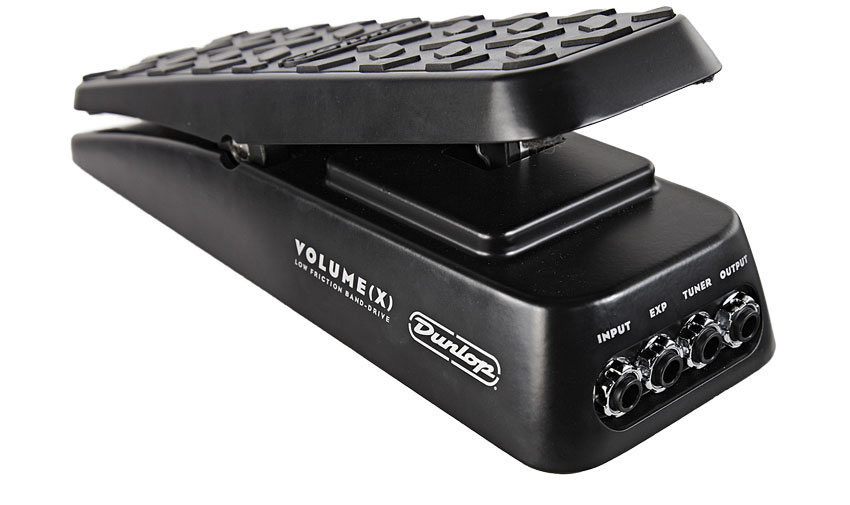MusicRadar Verdict
The switches can be awkward, but smooth action and solid build quality make this the volume pedal to beat.
Pros
- +
Durable. Works well as both an expression and a volume pedal.
Cons
- -
Price.
MusicRadar's got your back
Building on the success of Dunlop's DVP1 Volume Pedal, the DVP3 Volume (X) is both a passive volume pedal and an expression pedal.
The DVP1's non-slip grip rubber tread and fully adjustable rocker tension return, while Dunlop's Band Drive promises "a smooth range of motion without the fear of breakage or change in feel".
Aside from the colour, the only obvious change is an expression pedal connection on the front, in addition to input, output and tuner out jacks.
In Use
"Plugging in a TRS cable and using it as an expression pedal works perfectly with the EHX pedals we try"
As a volume pedal, the Volume (X) transitions smoothly from silence to full volume. It does cause a little treble loss compared with plugging straight into your amp, but it's no worse than any other passive volume pedal.
Plugging in a TRS cable and using it as an expression pedal works perfectly with the EHX pedals we try. In this mode, the function of the heel- and toe-down positions can be reversed via an internal push-switch, while an internal potentiometer adjusts the minimum value of the heel-down position. They're not the easiest controls to access, but it's unlikely you'll be tweaking them much.
With its rugged rubber tread and smooth rocker action, the Volume (X) is simple and satisfying to use - the treadle produces no noticeable noise, and its torque is easily adjustable via a screw beneath the heel end.
Combined with the rock-solid aluminium construction, the Volume (X) justifies its high asking price; it's not the cheapest volume/ expression pedal, but it's one of the most durable.
Want all the hottest music and gear news, reviews, deals, features and more, direct to your inbox? Sign up here.
Mike is Editor-in-Chief of GuitarWorld.com, in addition to being an offset fiend and recovering pedal addict. He has a master's degree in journalism, and has spent the past decade writing and editing for guitar publications including MusicRadar, Total Guitar and Guitarist, as well as a decade-and-a-half performing in bands of variable genre (and quality). In his free time, you'll find him making progressive instrumental rock under the nom de plume Maebe.

